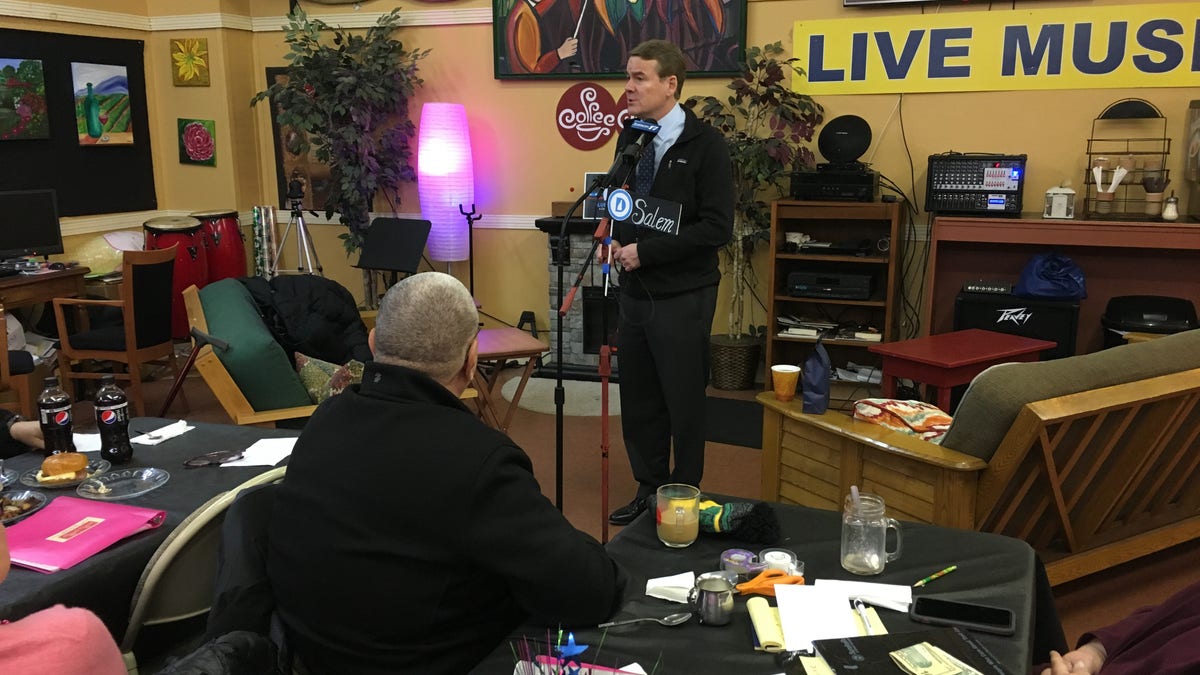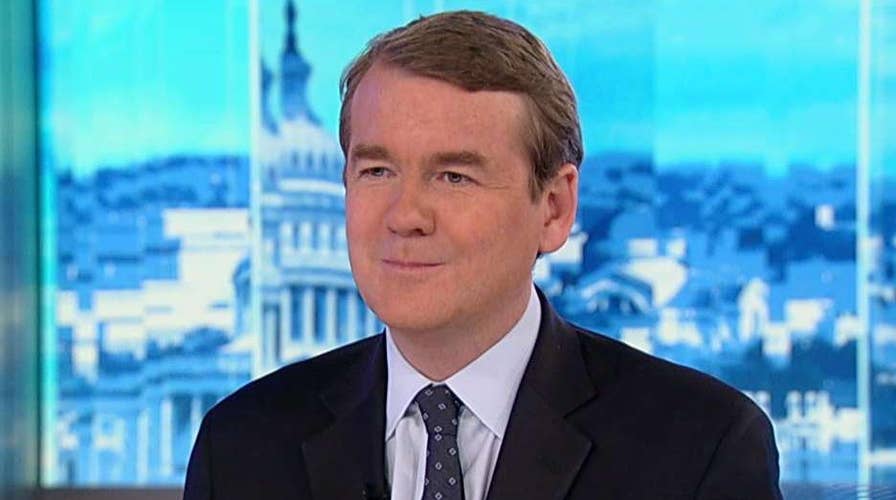Sen. Michael Bennet on impeachment inquiry, size of Democratic presidential field
Democratic presidential candidate Michael Bennet joins Dana Perino on 'The Daily Briefing.'
SALEM, N.H. – Sen. Michael Bennet of Colorado faces a challenging uphill climb to win the Democratic presidential nomination. But regardless, he said he's going all-in on the state that holds the first primary in the race for the White House.
And the long-shot contender is taking aim again at one of the top tier candidates: South Bend, Indiana Mayor Pete Buttigieg.
THE LATEST FROM FOX NEWS ON THE 2020 PRESIDENTIAL CAMPAIGN
Campaigning in New Hampshire Friday, Bennet highlighted in an interview with Fox News that, “I think I’m far more experienced than he is.”
Bennet, who served as superintendent of the Denver public school system before heading to the Senate in 2009, added that, “like Pete, I got my start at the local level. But my school district had a budget three times the size of his city and since that time I’ve spent 10 years in the Senate, which is enough time to learn how to get some things done but why the biggest things don’t get done in Washington. I think it’s just a very different set of experiences."
Bennet spoke after holding the first of what he pledges are 50 town halls between now and the state’s February 11 presidential primary.
“I think a lot of my time is now going to be devoted to New Hampshire,” he told Fox News.
Asked why he’s emphasizing New Hampshire instead of Iowa, which kicks off the presidential primary and caucus nominating calendar eight days before the Granite State votes, Bennet pointed to New Hampshire’s smaller size and similarities to his home state.
“It’s a little less crowded. It reminds me a lot of Colorado," he said. "It’s a third Republican, a third Democratic, a third independent, which is what Colorado is like. And I think I can get to one end of it to another over and over again, which is why I’ve committed to do 50 town halls between now and the primary.”
Asked where he needs to finish in the primary, the senator would only say “I’ve got to do well here and I hope to do well here.”
Campaign officials told Fox News that they're currently adding to the roughly 10 staffers they have in New Hampshire, and they intend to open two more campaign offices, bringing to three the number they have in the state.
But the campaign added that it's not abandoning Iowa - where it has about 20 staffers.
“Our team in Iowa is intact. It’s a great group of people,” Bennet noted.
Bennet jumped into the race on May 2. His campaign launch was delayed after he was diagnosed with prostate cancer and underwent surgery. But after announcing a clean bill of health in mid-April, Bennet moved forward with his White House bid.
He qualified for the first two Democratic presidential debates, held in June and July, but has failed to make the stage since those early showdowns – as he’s fallen short of the polling and fundraising thresholds.
But speaking at a café in Salem, New Hampshire – a large town along with state’s southern border with Massachusetts – Bennet argued that “the debates I don’t think have done very much for the Democratic Party. I think they’ve sort of played into Donald Trump’s hands. I can see why it’s entertaining and part of what we do but it shouldn’t be the central way we conduct this election.”

Democratic presidential candidate Sen. Michael Bennet of Colorado campaigns at a cafe in Salem, NH, on Dec. 6, 2019
And he took aim at the top tier contenders for the nomination, saying “we’ve got a problem on our hands because I think people are deeply unconvinced that the leading candidates in this race can beat Donald Trump. And that’s the No. 1 issue for people.”
Asked by the crowd how he can compete with the candidates with bigger name identification and bigger campaign cash war chests, Bennet pointed to New Hampshire’s tradition of late-deciding voters.
“Look, you guys are just starting to make up your minds here, in New Hampshire, to say nothing of the rest of the country,” he noted.
That tradition is reflected in the latest polls in the state’s Democratic presidential primary, with a high percentage of undecided voters – or voters who are backing a candidate but saying they could change their minds by primary day in February.






















